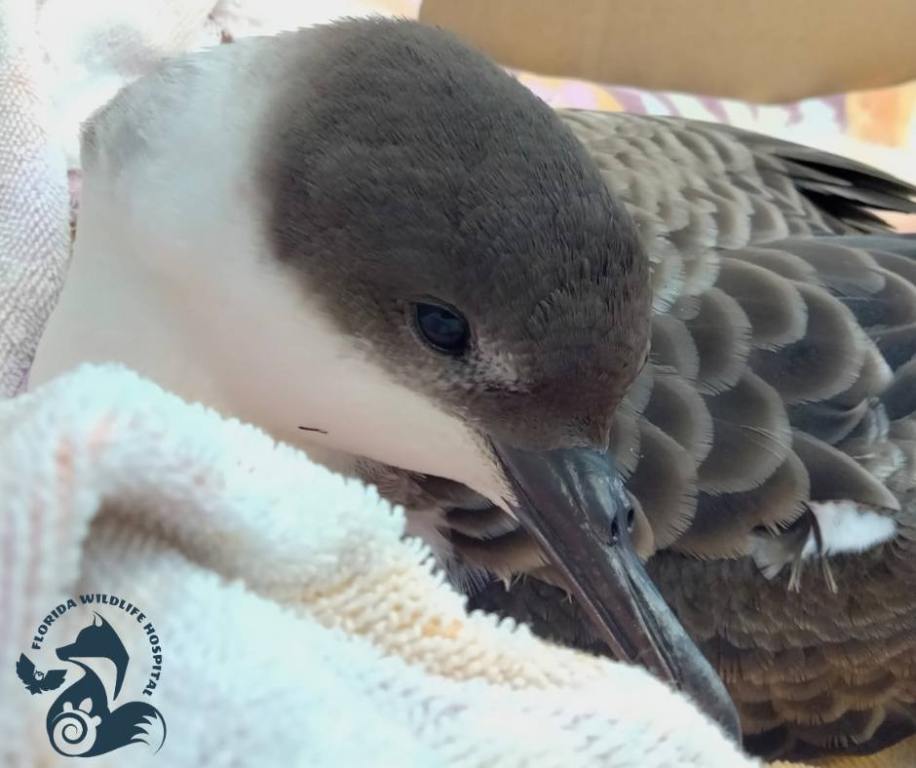Pelagic Birds Are Washing Up On Florida Shores: Here’s Why
We’re almost one month into Hurricane Season here in Florida. The temperatures are rising and those afternoon showers are hitting the spot right about now. But, the storms lingering offshore are causing Great Shearwater Birds to wash up on Florida’s beaches across the state.
A few days ago, the Florida Wildlife Hospital took to Facebook to release a statement about these Pelagic birds. They said: “The current tropical system off the Florida coast has brought in an influx of shearwater birds, we have received over 40 within the last couple of days. Shearwaters are pelagic birds and they are currently migrating off the Florida coast.”

What To Do If You Find A Great Shearwater Bird On A Florida Beach
The Florida Wildlife Hospital let us in on what to do if you find one of these Great Shearwater Birds beached or further inland. You’ll want to gently pick up the bird using a towel. Then, move them into a box such as a small dog or cat cage.
You’ll want to stay quiet around these birds so that you can keep them calm. It is best to not talk to the bird or try handling it after you’ve secured it in a box or cage. Then, transport the Great Shearwater Bird to the Florida Wildlife Hospital.
Why Are Great Shearwater Birds Washing Up On Florida’s Beaches?
Mary Foulks, a volunteer with Ark Wildlife Rescue and Rehabilitation, says, “The biologist gave us a preliminary report of what she was thinking was that it was related to their migration exhaustion and then hitting these easterly winds and the weather and the rough surf.”
The Great Shearwater Bird migrates about 6000 miles for food and breeding. The storms offshore are causing heavy surf and high winds that make these birds more fatigued.
When they do wash up on Florida’s beaches, many of them are said to be so tired they can’t walk or fly. If you find one of these birds, reach out to the Florida Wildlife Hospital or the FWC (Florida Fish and Wildlife Commission).
The Florida Wildlife Hospital is open from 9 AM – 4:30 PM. If you find one of these birds after hours, the FWH has drop-off boxes that are monitored by the staff.






